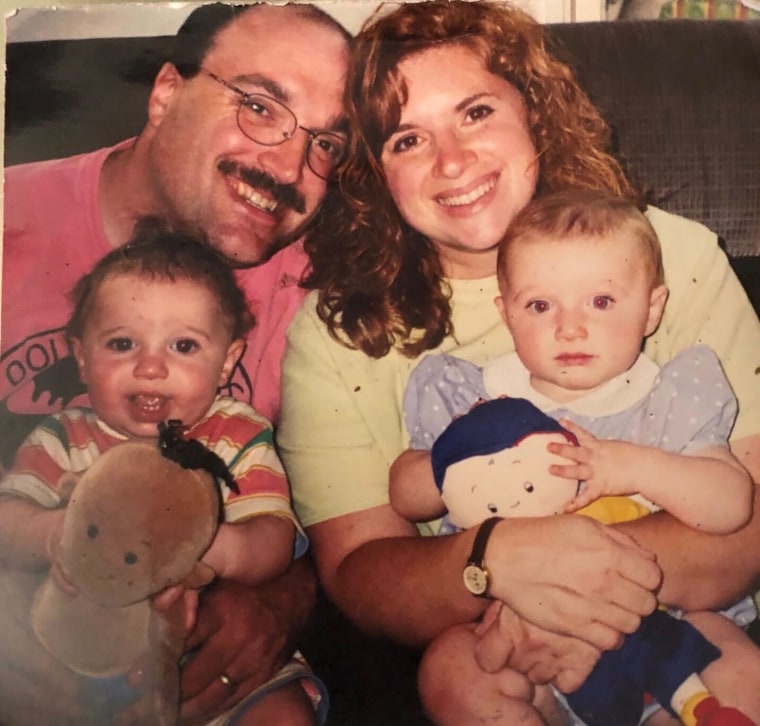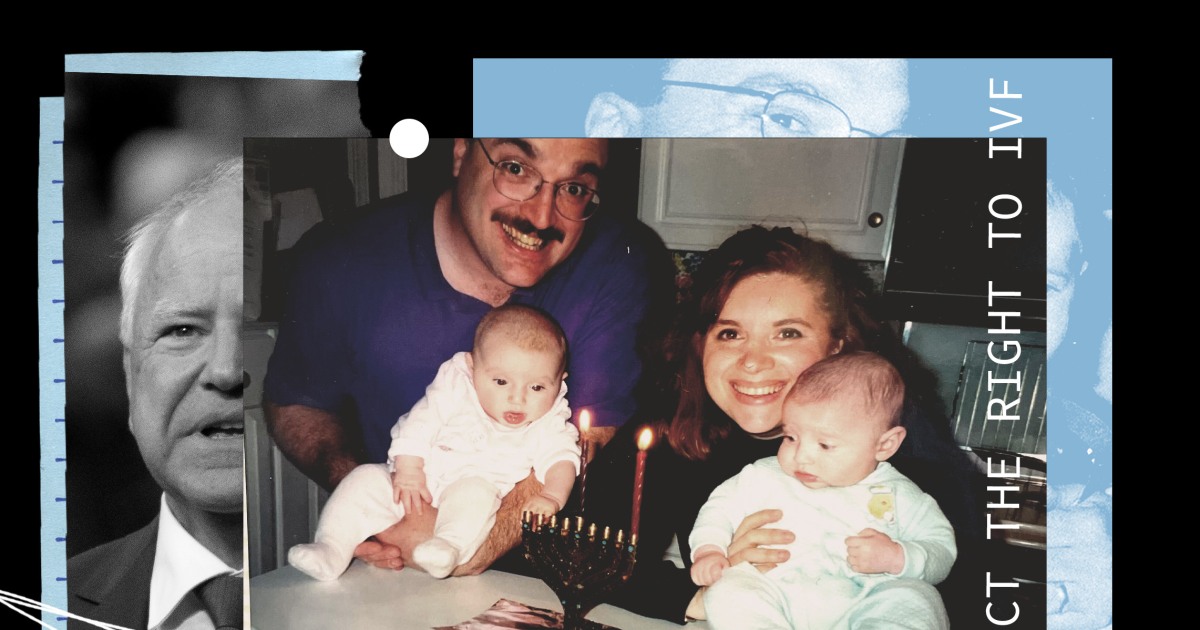Minnesota Gov. Tim Walz’s Midwestern dad energy is hard to miss. Memes and social media posts — some silly, some earnest — have proliferated as online progressives celebrate “America’s dad.”
Walz reminds me of my dad, too. But in a different way.
Walz has spoken candidly about his family’s experience with assisted reproductive technologies, more commonly known as fertility treatments. Walz and his wife, Gwen, had their daughter, Hope, through intrauterine insemination (IUI) in 2001, after seven years of trying to have children. (Although Walz has sometimes used “IVF” as a catch-all term to refer to the fertility treatments his family went through, IUI is less invasive and less expensive than IVF, and it is often a first option for families struggling to conceive.)
Since 1978, over 10 million children globally are believed to have been born as a result of assisted reproductive technologies, according to the National Institutes of Health. I am one of those 10 million, as is my brother.

When my parents got married in 1996, they knew they wanted to start a family. When they had trouble conceiving naturally, they decided to pursue fertility treatments. They started with IUI and then tried IVF.
They were devastated when the first treatments failed. But after the second round of IVF, they were pregnant — with twins. My brother and I arrived in August 2000.
We wouldn’t exist without IVF. And when I hear Walz speak about the importance of access to fertility treatment, it reminds me of my own parents.
My dad is the most emotive person I know. He’s never been the stoic macho type. In fact, when I called him to check some facts for this essay, he cried.
I see the same raw emotion from Walz. “I’m not crying, you’re crying,” Walz said at an Arizona rally after the crowd began chanting his daughter’s name.
My parents describe their IVF experience as deeply trying, even as it led to the ultimate reward. And they’ve always expressed gratitude for the science that gave them their family.
As a teenager, I would joke about being a “test tube baby” and a GMO. But, deep down, I took pride in it, knowing the lengths my parents went to start their family. The method of our conception was never hidden from us — it was a part of our family’s story.
Those who have gone through fertility treatments like IVF share a special connection. Gwen Walz has spoken about the community assistance she received during her fertility process, sharing recently about a neighbor who assisted her with her IUI treatments.
When my parents were going through the process, my mom developed a similar community of women at her doctor’s appointments and on an early internet message board. They shared the highs and lows, the ups and downs. And when my mom became pregnant, she gave her unused medicine, worth over $2,000, to another woman struggling to pay for the treatments.
As a teenager, I would joke about being a “test tube baby” and a GMO. But, deep down, I took pride in it.
“Having this community of women was a lifeline for me,” my mom told me. “It was so validating to share my feelings and know others were feeling the same way. I didn’t know them well, but I felt like we were really close friends because we were going through such an intense experience together.”
Walz is talking about fertility treatments on the campaign trail for a reason: IVF in particular is under attack by some conservatives. In February, the Alabama Supreme Court ruled that frozen embryos are legally considered children, forcing many reproductive clinics to halt treatment in fear of legal challenges. And while most Republicans haven’t publicly endorsed an IVF ban, over 100 Republicans in Congress signed the Life at Conception Act, which claims legal protections for human beings should begin at “the moment of fertilization.”
After the Alabama ruling, Walz posted on Facebook: “Gwen and I have two beautiful children because of reproductive health care like IVF. This issue is deeply personal to our family and so many others. Don’t let these guys get away with this by telling you they support IVF when their handpicked judges oppose it. Actions speak louder than words, and their actions are clear. They’re bringing anti-science government into your exam room, bedroom, and classroom.”
Walz calls out their hypocrisy for what it is. How can a party that claims to believe in the sanctity of the family deny someone who wants a child? That’s another part of my father that I see in Walz — a sense of righteous anger about what he deems to be unjust and cruel.
Walz is reminding voters that reproductive rights are a men’s issue, too, as Faith Hill wrote in The Atlantic. But the way he speaks about this topic matters, too. He’s demonstrating a kind of masculinity that couldn’t be more different from the Trump-Vance machismo brand.
Hope Walz and I may not have much in common, life-wise. But we both have parents who went to great lengths to achieve their dream of starting a family.
And there are hundreds of thousands of Americans, like Hope and me, born through assisted reproductive technologies. We all see a piece of our own families in Tim Walz. And Walz carries a piece of all of us in his and Kamala Harris’ fight for reproductive rights.

Leave a Reply